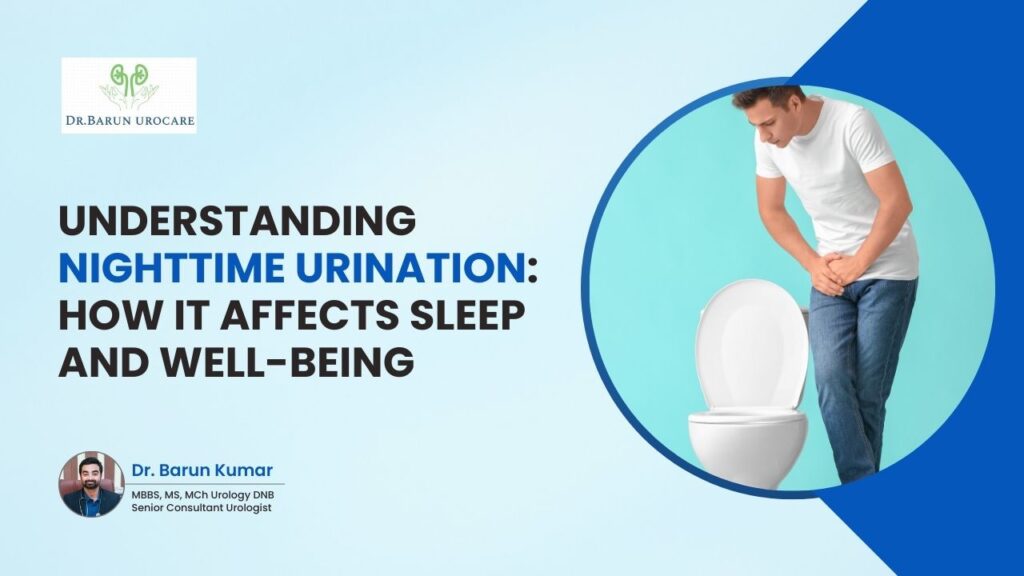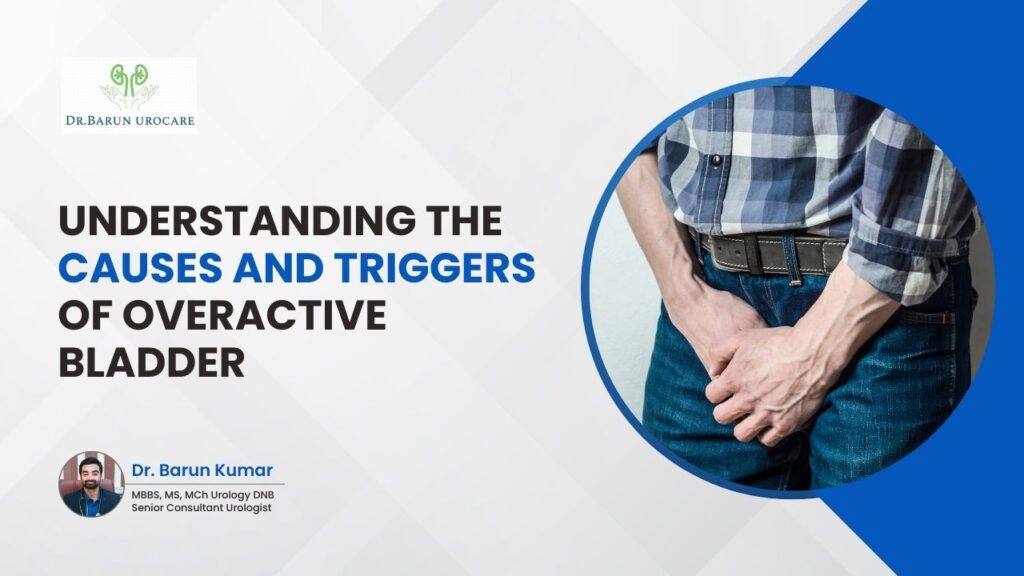Hey there! Ever woken up in the middle of the night, really needing to go to the bathroom? That’s called nocturia. It’s like your bladder is setting an alarm clock, telling you it’s time to pee. This can happen to anyone, but it’s super common as we get older.
Imagine you’re fast asleep, dreaming of flying like a superhero, and suddenly, you have to wake up just to use the toilet. Annoying, right? But there’s more to it. This little nighttime adventure can mess with your sleep, making you tired the next day. In this blog, we’re diving into why this happens and how it affects our sleep. Stay tuned, because we’re about to solve this nighttime mystery!
Background Information
What is Nocturia?
Nocturia is when you have to wake up to pee at night. It’s not a sickness, but it’s a sign that something might be up. Think of it like a puzzle piece. It tells us there’s more to figure out. Most people don’t mind getting up once. But if it’s two, or three times? That’s when it gets bothersome. It’s like if you’re trying to build a cool Lego castle but keep getting interrupted. Super frustrating, right? And guess what, this happens to a lot of people, especially as they get older.
Nocturia’s Impact on Sleep
When nocturia calls, sleepwalks away. Waking up a lot to go can mess up your sleep. Imagine you’re charging your favorite toy. If you keep unplugging it, it won’t charge well, right? It’s the same with your sleep. Bad sleep can make you feel like a zombie the next day. You’re tired and grumpy, and it’s hard to focus. It’s important for everyone, especially if you’re growing, to get good sleep. That’s why understanding nocturia is super important. It’s all about getting that full, uninterrupted ‘battery charge’ every night.
Causes of Nocturia
Producing Too Much Urine at Night
One big reason for nocturia is making too much pee at night. It’s like your body’s faucet is turned on high when it should be just dripping. This can happen for different reasons. Maybe you drank a lot of water before bed. Or your body is just in a habit of making more at night. It’s like filling a water balloon too much – eventually, you have to let some water out.
Decreased Bladder Capacity
Sometimes, your bladder can’t hold much. Think of it as a small backpack. You can only fit so much inside before it’s full. When your bladder is like a mini backpack, you have to go more often. It’s not about making too much urine; it’s just that there’s less room to store it.
Sleep Disruptions
Weirdly enough, not sleeping well can also cause nocturia. If you’re not sleeping deeply, you might wake up and realize, “Hey, I need to go pee.” It’s like if you’re lightly sleeping at a sleepover and hear every little noise. If you were sleeping deeply, you’d probably miss those sounds and sleep through the night.
Impact on Sleep Quality and Health
How Nocturia Affects Your Sleep
Waking up a lot for bathroom breaks chops up your sleep. It’s like trying to watch a movie, but it keeps pausing. Annoying, right? When sleep is chopped up, you don’t get enough of the deep, dreamy sleep. That’s the really good stuff that makes you feel rested. Without it, you might feel groggy and tired the next day. It’s like your body’s battery didn’t get fully charged.
Nocturia’s Effect on Your Health
Constantly interrupted sleep isn’t great for your health. It’s like if your phone keeps dinging with notifications when you’re trying to do homework. It’s hard to focus and do your best. Poor sleep can make it tough to concentrate, learn new things, and be your happiest self. It’s super important for growing kids (and adults too!) to get that quiet, peaceful sleep for good health.
Managing Nocturia for Better Sleep
Medical Help and Lifestyle Tweaks
If nocturia bugs you a lot, a doctor can help. They’re like detectives figuring out why it’s happening. They might suggest changing some meds or trying new ones. It’s a bit like tweaking a recipe until it tastes just right.
Changing Your Habits
Some simple changes can make a big difference. Like, not drinking loads of water right before bed. Think of your bladder as a small water tank. You don’t want to fill it to the brim before sleeping. Cutting back on late-night sodas and juices helps too. Lifting your legs a bit before bed can keep that nighttime pee amount down. It’s all about giving your body the best chance for a full night’s sleep without bathroom trips.
Conclusion
Alright, we’ve covered a lot about nocturia and sleep. Remember, if you’re getting up a lot at night to pee, it’s like a puzzle. It might be a sign to check in with a doctor. They’re the best at solving these mysteries! Making small changes, like not drinking a bunch of water before bed, can also help. Getting good sleep is super important. It’s like charging your body’s battery so you can play, learn, and have fun all day. So, take care of your sleep, and don’t let those nighttime bathroom trips keep you from dreaming big! Sweet dreams and happy snoozing!
Frequently Asked Questions
1. How Many Times Is Normal to Get Up at Night to Pee?
It’s normal to get up once in a while. Maybe you had extra water or a late-night drink. But if it’s over twice every night, that’s when it might be something to look into.
2. I Wet the Bed – Is This Because of Nocturia?
Nope, nocturia is different. With nocturia, you wake up to go pee. Bed-wetting is when you don’t wake up. No need to feel embarrassed, though. If you’re facing this, it’s a good idea to chat with a doctor to find out the cause.
3. What Health Conditions Make Nocturia Worse?
For guys, an enlarged prostate can be a reason. Medicines, especially for blood pressure, can also cause it. Other things like bladder issues, leg swelling, and uncontrolled diabetes can make nocturia worse.
4. How Much Caffeine Should I Drink?
If you’ve got bladder issues or nocturia, it’s better to cut back on caffeine. It can make you pee more, both in how often and how much.
5. Can I Drink Alcoholic Beverages? How Many?
Alcohol, like caffeine, can increase nocturia. Try not to drink alcohol after 6 p.m. to help reduce nighttime bathroom trips.
6. How Does Pre-Diabetes Cause Nocturia?
With pre-diabetes, there’s extra sugar in your blood. This leads to more pee being made. So, if you have pre-diabetes or uncontrolled diabetes, you might find yourself going to the bathroom more at night.
7. Can Surgery Help a Dropped Bladder?
Surgery can be an option, but it’s a big decision. You should talk it over with your doctor. If you’re stressed, tackling that first might help. And if you plan to have kids, you might want to wait because childbirth can affect the surgery’s results.
8. Will I Be Incontinent After Prostate Surgery?
It can take time to regain control after surgery. Strengthening your pelvic floor muscles helps a lot. This can speed up recovery and reduce the chances of incontinence.
9. How Is Nocturia Diagnosed?
Before seeing a doctor, it’s smart to keep a pee diary. Note how much you drink, how often you pee at night, and how much. Also, jot down your current meds and any past bladder issues. This info can help your doctor figure things out.


